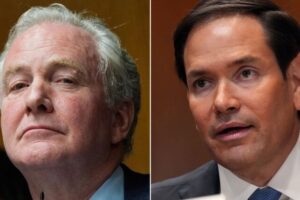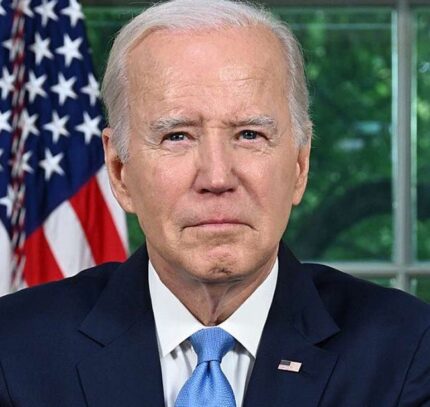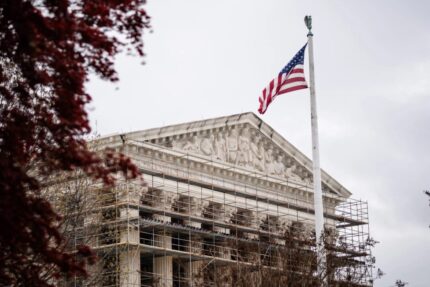In a historic electoral shift, Keir Starmer is poised to become Britain’s next prime minister as the Labour Party secures a sweeping victory, marking the end of 14 years of Conservative rule. With the majority of votes still being counted, Labour has already surpassed the 326-seat threshold required for a parliamentary majority, with exit polls suggesting they will claim approximately 410 out of 650 seats. This landslide victory reflects widespread public dissatisfaction with the incumbent Conservative government, led by Rishi Sunak, who conceded defeat amid what is projected to be the party’s worst performance in its history.
Starmer, after securing his seat in London, addressed the nation, emphasizing a shift from political theatrics to genuine public service. “Tonight, people here and around the country have spoken and they’re ready for change,” he stated. “The change begins right here … You have voted. It is now time for us to deliver.” Sunak, acknowledging the defeat, congratulated Starmer on his victory and expressed a commitment to a peaceful transition of power, admitting the Conservative party’s failures and taking responsibility for the significant loss.
Challenges Ahead for Starmer’s Labour Government
Despite the resounding electoral success, Keir Starmer faces a daunting array of challenges as he prepares to govern. Britain is grappling with its highest tax burden since the post-World War Two era, substantial national debt, declining living standards, and underfunded public services, particularly the National Health Service (NHS), which has been severely affected by ongoing strikes. While Starmer’s campaign promised significant change, he has already scaled back some of Labour’s ambitious initiatives, such as major green spending programs, and pledged not to increase taxes on working individuals.
The new prime minister will need to navigate these economic and social issues carefully to fulfill his promises and address the public’s expectations. Starmer’s administration must also manage the residual effects of Conservative policies, such as the controversial plan to send asylum seekers to Rwanda, which he has vowed to abolish. However, he will face pressure to develop effective solutions to control immigration, particularly the influx of people crossing the Channel in small boats.
Conservative Party’s Future and the Rise of Reform UK
The Conservative Party’s devastating defeat has ignited an immediate internal debate about its future direction. Some party members argue that moving away from the center ground contributed to their loss, while others believe that right-wing populist sentiment, captured by Nigel Farage’s Reform UK party, played a critical role. Reform UK managed to secure four parliamentary seats, with Farage himself winning a seat on his eighth attempt, and outperformed the Conservatives in several regions.
Farage, emboldened by his victory, declared, “There is a massive gap on the centre right of British politics and my job is to fill it. Believe me, folks, this is just the first step of something that is going to stun all of you.” This development suggests that the Conservative Party will need to reevaluate its platform and strategies to regain voter support and counter the growing influence of Reform UK. The coming months will be pivotal in determining the political landscape of Britain as both Labour and the Conservatives adjust to this new era of governance and opposition.
Populist Alternative Gains Momentum
The rise in support for a populist alternative echoed recent similar results across Europe, where far-right parties have been surging. However, unlike in France, where Marine Le Pen’s far-right National Rally party made historic gains in an election last Sunday, the British public has opted for a centre-left party to bring about change. Keir Starmer’s Labour Party has promised to improve relations with the European Union to resolve issues created by Brexit. Despite the popularity of far-right politicians in other parts of Europe, rejoining the European Union is not on the table for Starmer, who has maintained his opposition to Brexit while vowing to address its adverse effects.
Starmer’s commitment to international relations extends beyond Europe. He has pledged to continue London’s unequivocal support for Ukraine, even as he may face the challenge of working with Donald Trump, should he win the U.S. presidential election in November. This nuanced stance reflects Starmer’s attempt to navigate the complex geopolitical landscape while addressing domestic concerns and maintaining a strong international presence.
Labour’s Historic Turnaround
The election victory would represent an incredible turnaround for Starmer and Labour, which critics and supporters alike said was facing an existential crisis just three years ago. The party appeared to have lost its way after its devastating defeat in the 2019 general election. A series of Conservative scandals, most notably the revelations of parties in Downing Street during COVID lockdowns, undermined then Prime Minister Boris Johnson, leading to a significant erosion of the Conservatives’ commanding poll leads.
The decline was further cemented by Liz Truss’ disastrous six-week premiership following Johnson’s forced resignation at the end of 2022. Truss’ tenure, marked by economic missteps and political instability, left the Conservatives in disarray. Rishi Sunak, who succeeded Truss, was unable to reverse the fortunes of his party, which continued to trail Labour by a substantial margin in opinion polls.
In a surprising move, Sunak called for an early election in May, only to see his campaign fail spectacularly. “We deserved to lose. The Conservative Party just appears exhausted and out of ideas,” said Ed Costello, chairman of the Grassroots Conservatives organization, which represents rank-and-file members. “But it is not all Rishi Sunak’s fault. It is Boris Johnson and Liz Truss that have led the party to disaster. Rishi Sunak is just the fall guy.”
Starmer’s victory marks a significant shift in British politics, signaling a renewed focus on centre-left policies and a potential realignment of the UK’s approach to both domestic and international challenges














